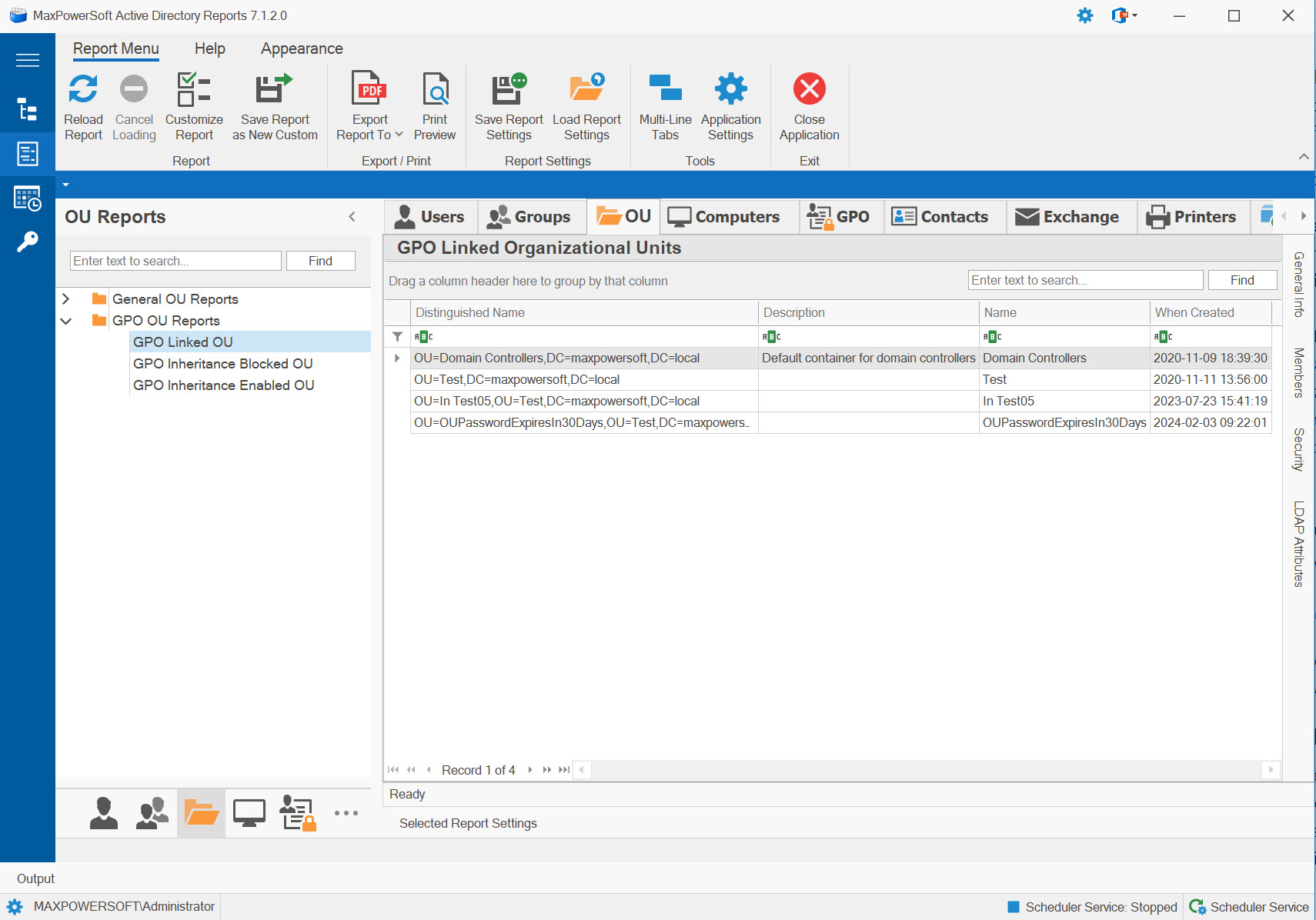Group Policy Object (GPO) Organizational Units Reports
"Group Policy Object (GPO) Organizational Units" refer to the specific Organizational Units (OUs) within an Active Directory domain where Group Policy Objects are applied. These OUs act as containers for users, computers, or other OUs, and when GPOs are linked to them, the defined policies within those GPOs are applied to the objects (users or computers) within those OUs. This allows for granular control and management of policy settings across different parts of the domain. The reports available in this section include:

GPO Linked Organizational Units Report
The report titled "Group Policy Object (GPO) Linked Organizational Units" generates a comprehensive list of all organizational units within the domain that have Group Policy Objects (GPOs) linked to them.
GPO Inheritance Blocked Organizational Units Report
"Organizational Units with block policy inheritance enabled" refers to specific Organizational Units (OUs) within an Active Directory domain that have the "Block Policy Inheritance" option enabled. When this option is set, it prevents any Group Policy Objects (GPOs) linked to parent OUs from being applied to the objects (users or computers) within these OUs. Essentially, the policy settings from parent OUs will not affect the objects within OUs with block policy inheritance enabled, allowing for localized policy control and exceptions within the domain's organizational structure.
GPO Inheritance Enabled Organizational Units Report
"GPO Inheritance Enabled Organizational Units" refers to the specific Organizational Units (OUs) within an Active Directory domain where Group Policy Object (GPO) inheritance is permitted. In other words, the GPOs linked to parent OUs will be applied to the objects (users or computers) within these OUs unless there are any exceptions or conflicts set at a lower level in the organizational structure.
Enabling GPO inheritance ensures that policy settings configured at higher levels in the domain hierarchy flow down and affect the objects within these OUs, allowing for consistent and uniform policy application throughout the domain.